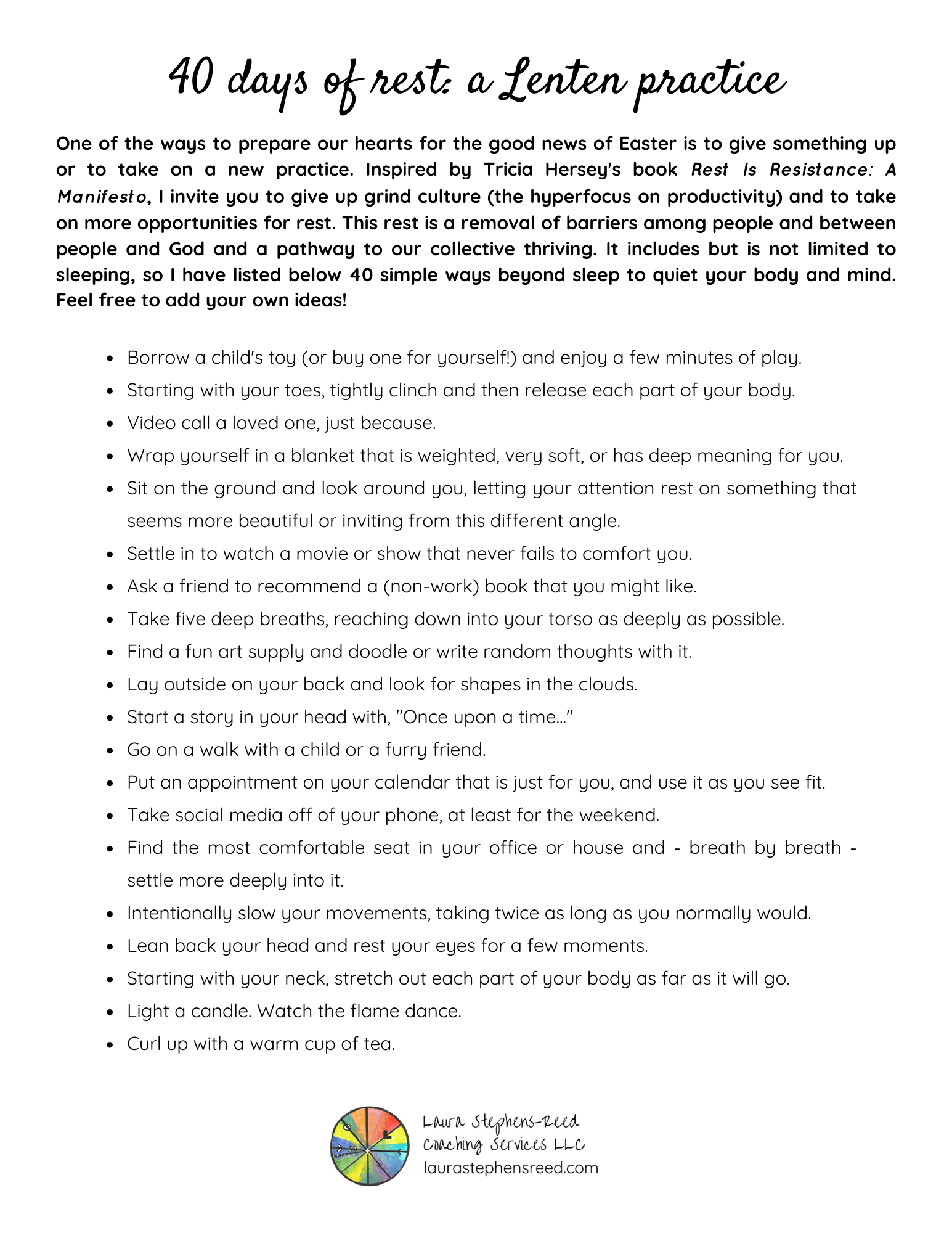Pastors are in a tough spot these days. The Church as an institution is in the midst of major change that pre-dated the pandemic but was quickly accelerated by it. Those we looked forward to seeing after Covid still haven’t rejoined us. The budget is tightening. The volunteers are burned out. And each person in the pew comes bearing big worries, some of them personal and many of them shared: political rhetoric is becoming more and more divisive, and we know that injustice, climate change, and gun violence endanger each of us. That means we are all a little on edge. That makes us all a little harder to shepherd.
When we are anxious, we can get stuck in the parts of our brain designed to protect us. Our brain is wonderfully made to focus all our resources on survival when we face a physical threat. Unfortunately, this set-up is less helpful when needing to have a hard or uncomfortable conversation than it is when we are faced with a hungry or threatened predator. Our brain chemistry locks us out of our creativity and openness to possibilities and instead urges us to take what seems like the shortest route to safety and stability.
Enter: anonymous feedback. An unsigned note or a verbal message passed through a third party might seem like the best way to give your pastors a quick check on the pulse of the congregation (or, at least, of one member of it) while sparing both of you some trouble. But here’s why that feedback might not be as effective as you hope:
It separates the criticism from needed context. For feedback to be useful, the one being critiqued needs to be able to ask further questions (e.g., what was it about this that really troubled you? Who specifically are the people upset by this?). And often there is a pastoral care issue beneath a criticism, which cannot be unearthed and addressed if there's not conversation.
It doesn't follow scriptural witness about conflict. Matthew 18 tells us that the first step in resolving friction is for the offended party to go directly to the one who offended, even (perhaps especially) if the offense was unintentional. Subsequent actions include bringing other people into the conversation if necessary. Nowhere in Matthew 18 is there mention of anonymous feedback.
It puts the receiver of the feedback in an awkward position. Family systems theory teaches us about triangulation, in which someone is roped into being the middle person in a relationship rift. That triangulated person might have little to no stake in the presenting issue, but they are caught between the hopes and needs of two people with which they must interact.
It puts the pastor in a defensive posture. If your pastor doesn't know who is giving this feedback, that is a recipe for high anxiety: who is upset with me? Who is looking more closely for me to slip up? Whom can I trust? These questions are distractions from - not conditions for - fruitful ministry.
It doesn't contribute toward forward-looking solutions to the issue. If a situation is concerning enough that you need to offer feedback, it's important that you are also willing to help look for a way to resolve it. That requires working together with those involved, which isn't possible when feedback is given via an unsigned note.
It deprives both parties of the chance to strengthen the relationship. It might seem counter-intuitive, but sometimes the most trusting relationships come when the people involved were willing to be honest and vulnerable with each other about disappointment or disagreement. Take that chance!
Luckily, we have more helpful ways to take our thoughts to the people who lead us. Lay leaders can set these expectations and procedures in place to get the kind of information that they and the pastor can use:
Consistently refuse to entertain anonymous criticisms. Make it policy that unsigned feedback will be trashed, remind the church about that policy regularly, and stick to it. People will have to decide whether the issue is important enough to them to be more direct in their feedback.
Create clear feedback loops and educate the congregation about them. What, then, is the best way for pastors and lay leaders to receive comments? Name the how (e.g., by filling out a form? setting up an appointment?), the when (e.g., anytime except right before worship), and the who (e.g., the pastor or personnel committee).
Don't wait until annual reviews to share feedback with the pastor. Many ministers dread annual reviews because it has become a time to pile on all the congregation's frustrations and survival anxieties from the year prior. Feedback is much more helpful when it is specific and timely.
Encourage positive feedback as well. Your pastors need to hear what you appreciate about their ministries. They will be better able to receive your critiques if they know you see their gifts as well as their shortcomings. As with negative comments, specific and timely feedback is the most useful.
We all get anxious and frustrated at times. That means we care. But those feelings are also signals that we need to make an effort to tap into our higher brain functioning by interrupting the idea that we are in imminent danger (by such means as taking deep breaths, going for a walk, or watching a funny video). When we do, we can have productive, substantive conversations that allow us all to be the body of Christ together, working in concert to share the love of God in a troubled and troubling world.
Photo by lilartsy on Unsplash.






















